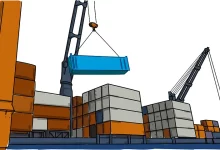Solutions To Business Failure And Problems In Nigeria
Solutions To Business Failure And Problems In Nigeria
Nigeria is known for being called the giant of Africa and it’s one of Africa’s largest countries with potential for business growth and prosperity.
However, like any other nation, this country- Nigeria faces numerous challenges that can lead to business failures and hinder economic progress. To ensure sustainable growth and development, it is important to ensure these problems are being addressed and implement effective solutions.
Therefore, in this article, you will explore “solutions to business failure and problems in Nigeria”.
Without further Ado, let’s delve into becoming knowledgeable of solutions to business failure and problems in Nigeria.
What are The Solutions To Business Failure And Problems In Nigeria?

To get started, below is everything you need to know about solutions to business failure and problems in Nigeria:
Solutions To Inadequate Infrastructure
In my previous post, I shared with you the factors affecting entrepreneurship in Nigeria.
One of the critical challenges facing business growth in Nigeria is the inadequate state of infrastructure.
Frequent power outages, poor road networks, limited access to clean water, and unreliable telecommunications hinder business operations.
To address this, the government must use infrastructure development through increased investment and public-private partnerships.
By improving transportation, energy supply, and digital connectivity, businesses can operate more efficiently, reducing downtime and increasing productivity.
Solutions To High Cost of Doing Business
On solutions to business failure and problems in Nigeria, we also have the”high cost of doing business”.
Nigeria is currently facing a high cost of doing business due to factors like corruption, multiple taxes, and bureaucratic red tape.
However, if we really want to tackle corruption and the high cost of doing business, it’s in the capacity of the government to enforce strict anti-corruption measures and promote transparency in all sectors.
Additionally, streamlining the tax system and reducing excessive paperwork will encourage business growth and attract foreign investors.
A business-friendly environment will facilitate the establishment and expansion of enterprises, driving economic growth.
Solutions To Inability To Access Finance
Lack of access to finance is a significant hurdle for small and medium-sized enterprises (SMEs) in Nigeria.
Many entrepreneurs struggle to secure loans from traditional financial institutions due to stringent requirements and collateral demands.
The government should collaborate with financial institutions to design specialized loan programs for SMEs.
Furthermore, fostering a robust credit reporting system will enable lenders to assess creditworthiness accurately, reducing risks and encouraging lending to deserving businesses.
Solutions To Inadequate Education and Skills Gap
The education and skills gap in Nigeria can actually hinder business development and innovation and to address this, the government must ensure education reforms and invest in vocational training programs that go along with the needs of the labor market.
By nurturing a skilled workforce, businesses can find qualified employees, and entrepreneurs can leverage specialized skills to drive their ventures forward.
Solutions To Inconsistent Regulatory Environment
Businesses in Nigeria often face challenges due to an inconsistent regulatory environment.
Frequent policy changes and unclear regulations can lead to uncertainty and hinder long-term planning and dreams from getting fulfilled.
The government should focus on creating stable and predictable policies that support business growth and foster investor confidence.
Regular engagement with the private sector will help identify problem areas and develop effective solutions collaboratively.
Enhancing Export Opportunities
One of the solutions to business failure and problems in Nigeria we cannot overlook is the contribution of the enhancement of export opportunities.
By diversifying the economy and expanding export opportunities, we can reduce Nigeria’s dependence on oil revenue and create a more resilient business environment.
The government also needs to focus on improving trade relations with other countries, investing in export-oriented industries, and providing support to businesses seeking to enter international markets.
Export promotion agencies can play a crucial role in facilitating market entry and providing market intelligence to Nigerian businesses.
Entrepreneurship Education and Support
Lastly on solutions to business failure and problems in Nigeria, promoting entrepreneurship education at various levels of the educational system can instill a culture of entrepreneurship from an early age.
Educational institutions can provide entrepreneurship training, mentorship, and access to resources that empower young minds to pursue their business ideas.
Also, the government can establish entrepreneurship support centers and funding schemes for startups and SMEs to encourage more Nigerians to venture into business.
FAQs On Solutions To Business Failure And Problems In Nigeria
Here are some frequently asked questions on solutions to business failure and problems in Nigeria with their respective answers:
What are the main reasons for business failure in Nigeria?
Business failure in Nigeria can be attributed to various factors, including inadequate infrastructure, high cost of doing business, limited access to finance, lack of skilled labor, inconsistent regulatory environment, and inadequate market research.
Additionally, corruption, political instability, and economic fluctuations also contribute to business challenges in the country.
How can the Nigerian government improve the infrastructure for businesses?
The Nigerian government can improve infrastructure by increasing investment in critical areas such as power generation, road networks, water supply, and telecommunications.
Public-private partnerships can also be fostered to attract private sector involvement and expertise in infrastructure development.
By using infrastructure projects and ensuring their timely implementation, the government can create a more conducive environment for businesses to operate efficiently.
How can small and medium-sized enterprises (SMEs) access finance in Nigeria?
Access to finance remains a significant challenge for SMEs in Nigeria.
However, they can explore various options, such as seeking loans from specialized SME-focused financial institutions, venture capital firms, or investors.
Also, the Nigerian government and development finance institutions offer grants and loan programs specifically designed for SMEs.
Building a solid business plan and maintaining a good credit history can also increase the chances of securing funding.
What role can the education system play in addressing the skills gap?
The education system can play a vital role in addressing the skills gap by aligning curriculum with the needs of the job market.
Introducing vocational training programs and partnerships with industries will equip students with practical skills.
Entrepreneurship education can encourage more students to consider starting businesses, thereby creating job opportunities for themselves and others. Lifelong learning initiatives can also help upskill the existing workforce and improve overall employability.









